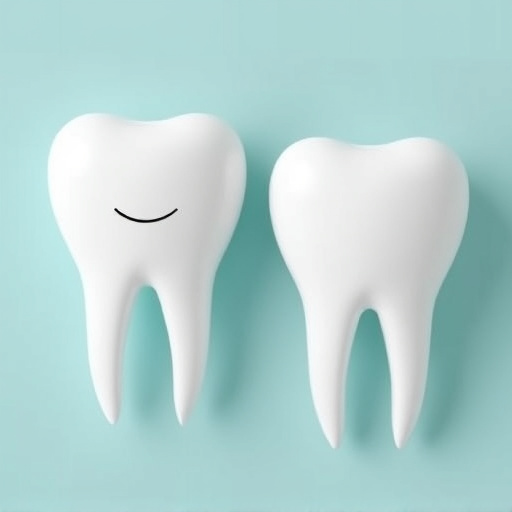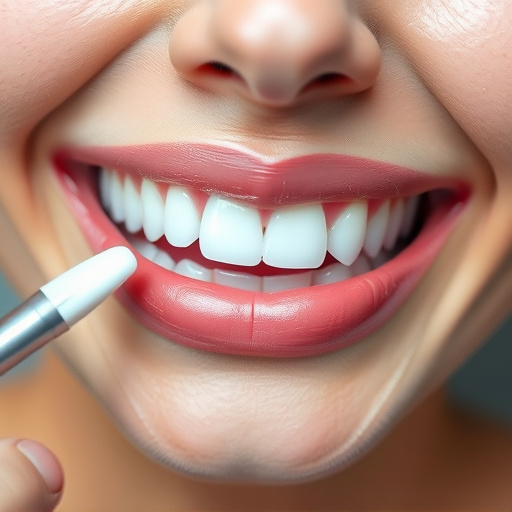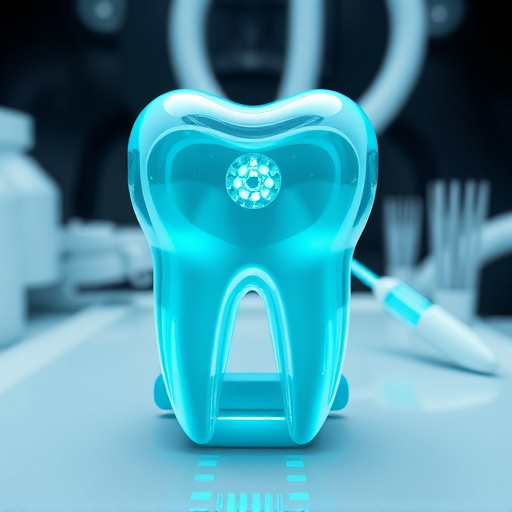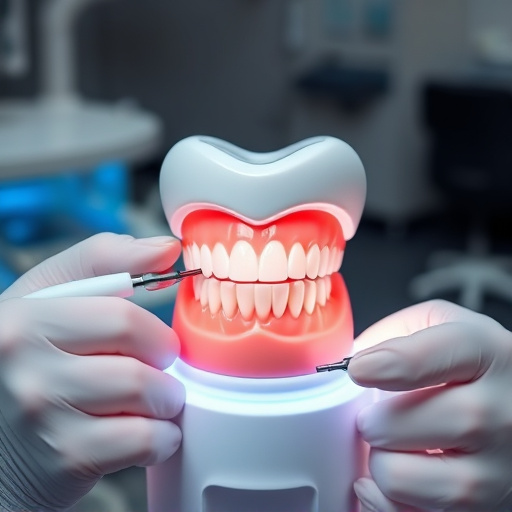Tooth sensitivity treatment focuses on addressing causes like receding gums and damaged enamel. Simple measures include desensitizing toothpaste and fluoride gels/mouthwashes, while severe cases may require clear aligners or specialized treatments. Effective management involves understanding post-operative inflammation, nerve exposure, and dental tool irritation to implement appropriate care practices and maintain optimal oral health.
After dental procedures, many individuals experience tooth sensitivity, a common yet often uncomfortable side effect. Understanding this condition and its underlying causes is key to managing discomfort effectively. This article explores in-depth the topic of tooth sensitivity treatment, focusing on post-procedural sensitivity. We’ll delve into the common triggers, from enamel wear to gum recession, and present effective solutions, offering relief and a path to recovery.
- Understanding Tooth Sensitivity After Dental Treatments
- Common Causes of Post-Procedural Sensitivity
- Effective Solutions for Relieving Tooth Sensitivity
Understanding Tooth Sensitivity After Dental Treatments

After dental procedures like teeth cleaning or even a tooth repair, it’s common for patients to experience tooth sensitivity. This can be attributed to the disruption of the protective layers of the tooth, exposing the delicate inner parts to temperature and pressure changes. Understanding this sensitivity is the first step towards managing it effectively.
Tooth sensitivity treatment often involves addressing the underlying cause, whether it’s a receding gum line or a damaged enamel. Simple measures like using desensitizing toothpaste can provide relief by blocking the transmission of sensations from the tooth’s surface to its inner nerve. For more severe cases, your dentist might recommend clear aligners that gradually move teeth into their proper positions, or specialized treatments focused on rebuilding and strengthening tooth structure.
Common Causes of Post-Procedural Sensitivity

Tooth sensitivity after dental procedures is a common concern for many patients. The most immediate and frequent cause is post-operative inflammation. When dental work involves cutting or shaping tooth enamel, even during routine teeth cleaning or cosmetic fillings, it can trigger nerve exposure, leading to sensitivity. Another factor could be the use of certain dental tools or materials that inadvertently irritate the tooth’s sensitive areas.
Additionally, some individuals experience temporary sensitivity due to the removal of plaque and tartar buildup. This is especially true for patients who haven’t had a teeth cleaning in a while. In such cases, the sudden exposure of the tooth’s inner layers can cause discomfort. Understanding these causes is the first step towards managing and treating tooth sensitivity effectively, ensuring patients find relief and maintain optimal oral health with appropriate dental care practices and treatments.
Effective Solutions for Relieving Tooth Sensitivity

Tooth sensitivity treatment is often sought after dental procedures due to temporary discomfort. Fortunately, there are effective solutions to relieve this issue. One common approach involves the application of fluorides, which can help strengthen tooth enamel and reduce sensitivity. Dentists may recommend fluoride gels or mouthwashes specifically designed for sensitive teeth.
Additionally, using desensitizing toothpastes is another straightforward method. These pastes contain ingredients that block the tubes connecting the dentin (the layer beneath the enamel) to the nerves, thus reducing the transmission of pain signals. In more severe cases, emergency dental care may be necessary, especially if sensitivity persists after minor procedures like tooth extractions or requires urgent tooth repair.
Tooth sensitivity after dental procedures is a common concern, but there are effective solutions available. Understanding the causes, such as enamel wear or exposure of dentin, is crucial for managing discomfort. Various treatments, including desensitizing toothpastes, fluoridation, and in some cases, protective coatings, can significantly relieve post-procedural sensitivity. Prompt action and the right dental care products can ensure a comfortable recovery, allowing you to enjoy your enhanced oral health without persistent sensitivity. Effective tooth sensitivity treatment is within reach, offering relief and peace of mind.














